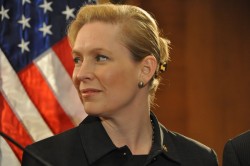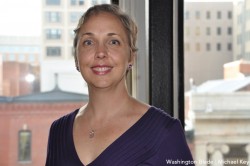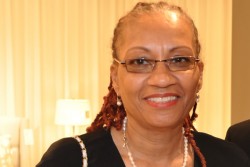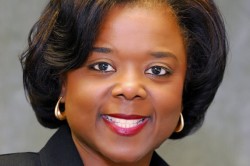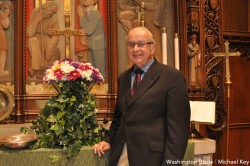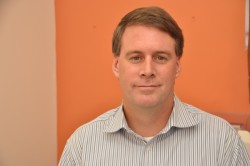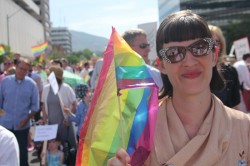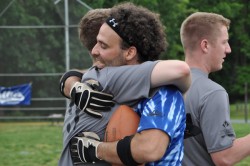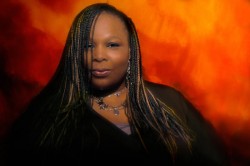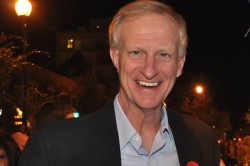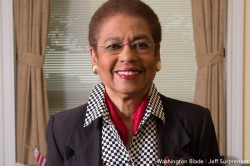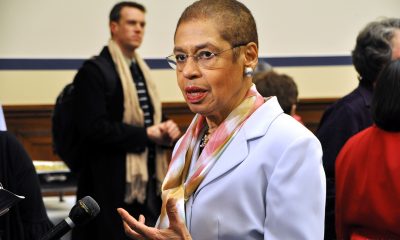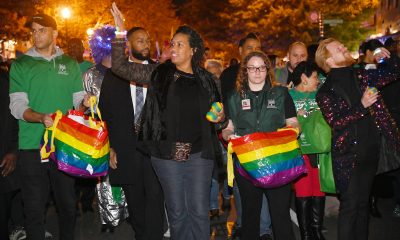Arts & Entertainment
Meet the allies
Straight supporters play key roles in LGBT movement
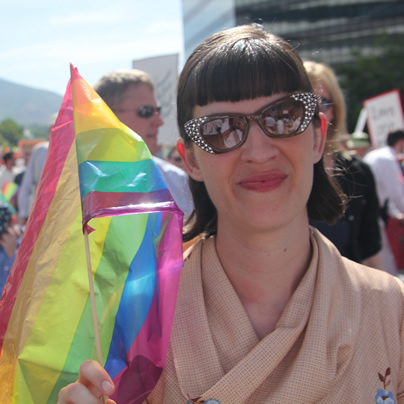
President Obama’s historic announcement endorsing marriage equality stands as perhaps the most prominent example of straight ally support for the LGBT rights movement. But there are many allies working hard to advance equality, from U.S. senators to ministers to community volunteers. Here, we introduce a few straight allies making a difference.
SEN. KIRSTEN GILLIBRAND
U.S. Sen. Kirsten Gillibrand (D-N.Y.) remains one of Capitol Hill’s most visible allies, a role she embraces.
She co-sponsored a Senate bill that would repeal the Defense of Marriage Act and championed the repeal of “Don’t Ask, Don’t Tell” in late 2010.
“I strongly believe that equality is an inalienable American right and should not be ascribed based on gender, race, religion or sexuality,” Gillibrand told the Blade, noting that the end of the ban on openly gay and lesbian service members strengthened national security. “Every American, no matter who you are, or who you love, should be able to serve their country with honesty and integrity.”
Gillibrand had previously backed civil unions for gays and lesbians, but she enthusiastically endorsed marriage rights for same-sex couples once then-New York Gov. David Paterson appointed her to succeed Secretary of State Hillary Clinton in the U.S. Senate in 2009. Gillibrand described President Barack Obama’s endorsement of nuptials for gays and lesbians during an ABC News interview last month as “a watershed moment in American history” that will provide the “leadership needed to finally repeal DOMA and win the unfinished fight for equality for all Americans.”
She also officiated at a same-sex wedding after New York’s law that allows same-sex couples to legally marry in the state took effect last July.
“I have more friends getting married this summer, which I’m looking forward to,” says Gillibrand. She became “teary eyed” when she watched New York City Council Speaker Christine Quinn and her long-time partner Kim Catullo walk down the aisle with their fathers at their May 19 wedding in Manhattan. “I wish them an enormous life of happiness together.”
During a 2010 interview with the Fire Island News, the senator said she’s a former partner in the New York law firm that David Boies, the lawyer who argued against California’s Proposition 8 in federal court alongside former Solicitor General Ted Olson, co-founded in 1997. Gillibrand did not cite a specific moment that prompted her to become an ally, but she referenced her own family when referring to marriage and other LGBT rights.
“It is just clear to me that these issues fundamentally go right to the core founding principles of this country — equality, justice and fairness,” Gillibrand says. “All of America’s families should be protected by the federal rights and benefits that accrue to families. My gay friends who are married, or have children, deserve every bit of protection that my husband and I enjoy. It’s a matter of right versus wrong, it’s a matter of core values of humanity and fairness and freedom and the ability of life, liberty and the pursuit of happiness.”
MICHAEL LAVERS
STAY ON TOP OF ALL THINGS PRIDE! DOWNLOAD THE DIGITAL PRIDE GUIDE TODAY!
MISSY TOMS
When Missy Toms marched in the Capital Pride parade last year, her first, it was a monumental event.
“I had never been in it or even seen it before,” she says. “But I tell you what, when we turned the corner and saw all those people at Dupont Circle, just seeing the joy, the excitement, they were just so proud and happy and just in that moment, it just all clicked for me that this is such an important thing that brings all these different people together. Every age, every level of income, they’re just all there and celebrating and it was such a beautiful experience for me. I was thinking, ‘Oh my gosh, this is how it should be everyday.’”
Toms is the director of external affairs for Capital Pride and handles the fundraising and marketing for the organization. This is her second year in the job and she splits her time between D.C. and Cleveland where she and her husband and three children (ages 13, 9 and 5) live. She knew former Capital Pride president Mike Lutz and saw the chance to do the job last year as a good way to be around her mother who was battling cancer at the time and lived in D.C. (she died in January).
“I knew she was in her last year so it just worked out that I got to be here a lot and spend a lot of time with her last year,” she says. “My contract is on a year-to-year basis, so I’m doing it again this year.”
But aside from personal logistics, Toms says Pride is important. Her brother came out to her when he was 17 and her best friend from college (“It sounds so cliché, but it’s true,” she says), Steve, was gay.
“It was just always something I was familiar and comfortable with,” she says. “I wasn’t political about it then. I got much more aggressive about that as I got older.”
Toms says it’s been surprisingly easy teaching her kids about gay issues.
“We explained to them about marriage, about ‘Don’t Ask, Don’t Tell,’ and my brother got married a few years ago in D.C. right after the law was passed here, so they got to see a gay wedding and I explained to them why this was so important so they completely understand. Kids are so ahead of adults a lot of times on these issues.”
JOEY DiGUGLIELMO
REV. CHRISTINE WILEY
Rev. Christine Wiley, who co-pastors D.C.’s Covenant Baptist United Church of Christ with her husband, Rev. Dennis Wiley, doesn’t remember knowing many LGBT people in her childhood or young adult life, but she does recall her mother teaching her about discrimination.
“I remember my mother saying to me, and this was a British-born black woman who grew up in the poor parts of London. Her mother was a white woman who was married to a man from the Caribbean in the ‘30s, you can imagine there was all kinds of discrimination she knew with that situation, but she said, ‘Don’t ever believe you’re better than anyone else,’” Wiley says. “She told me, ‘Some people don’t like whores and funny men,’ but she said they were some of the nicest people in the world. People used to say if someone was gay, they were funny. … Even as a young adult, I never remember having any bad feelings about gay people and I remember being annoyed when other people would say things … I always remember thinking that God made all people and I couldn’t figure out how people could say they were bad or were going to hell for this.”
The Wileys — Dennis is on sabbatical now and was unavailable for comment — are iconoclasts in the D.C. black church world as Baptist ministers whose church is unabashedly open and affirming to LGBT worshipers. Their church, located in Ward 8’s Bellevue neighborhood, has been through major changes in the 27 years they’ve been there (Dennis’s father was the former minister). Though they have roughly the same number of attendees on an average Sunday morning — about 400 give or take — as they had a decade ago, about half the congregation left after they conducted their first same-sex union ceremony in 2007.
“It was over a period of about five years,” she says. “It wasn’t like a mass exodus, but we did lose a lot of people but … on the other hand, we’ve been continually gaining as well and had a lot of people come who have a much stronger social justice stance. Many people identify us by our stance on LGBT issues but that’s not really the biggest part of who we are. It just happens to be one of the things we teach and believe.”
In addition to a belief that scriptural passages seeming to condemn gay sex have been misconstrued over the centuries, Wiley says the bigger picture for her is her belief in what she calls “liberation theology.”
“We see Jesus as the great liberator and Jesus is a person who was not afraid to count the cost,” she says. “You see this example so often in the Bible, with so many of the prophets of the Old Testament who were not afraid to speak truth to power. Part of our stance is that we cannot be politically correct all the time. We must do what we feel the Bible has called us to do. Was it hard at first? Yes. But when you really take injustice issues and see that as a big part of your life, there’s no other way. Can you speak to every single social injustice issue that’s out there? No. But this is one issue that we’re very clear that we’ve been called to speak to.”
JOEY DiGUGLIELMO
SHARON LETTMAN-HICKS
Sharon Lettman-Hicks, executive director and CEO of the National Black Justice Coalition, chooses her words carefully. She prefers to think of herself as a “sister of the movement,” and says the word ally is, for her, a misnomer. She’s also very clear about what she sees as her role at the helm of the large black LGBT political organization she oversees.
“I don’t see it that I’m fighting to help straight people understand,” she says. “I feel I’m teaching non-LGBT people to see the errors in their judgment. I don’t feel I have the license to speak on behalf of my brothers and sisters in that way, but to be a mirror for non-LGBT people to show them the conduct they should be affording my brothers and sisters. I think it’s a very nuanced way of looking at it and I don’t feel that LGBT people should have any necessity to explain why they should be treated equally.”
In practical ways, she understands being dubbed an ally is one way to look at it, but she prefers words that resonate more deeply with black Americans. And she’s not afraid to be blunt.
“From a business perspective, yes, I’m an ally, but culturally speaking, black people understand family, so when I’m speaking as an ally, it sounds like a cultural transaction. You’re doing something for me and we should be grateful. But I don’t think any LGBT person should feel grateful for getting respect. We should demand it. Thank you for accepting me? How dare you? Get out of my way. You don’t legislate people. Don’t think I’m going to let your rhetoric go unchallenged. I see my role as educating people on why their thought process of discrimination, homophobia and judgment is misplaced, inappropriate and unwelcome.”
Lettman-Hicks, who joined the Coalition in 2009 after eight years with People for the American Way, says the discrimination she felt as a child — she describes herself as an “Afro-Latina who was relatively obese for much of my life” — has informed her activism. Her work at People for the American Way and also some LGBT people she knew personally whom she says “were struggling,” was also a catalyst for her work, which she said in time, she has recognized as “a calling.”
“I started to think, ‘OK, what is my social responsibility here,’” she says. “It became kind of a matter of, ‘OK Sharon, step up to the plate or get out of the game’-type situation for me. ‘I know you’re not going to just accept the status quo and sit back and see this stuff going on.’ I grew up in an era where black liberation was a do-it-yourself kind of mindset but we could never ignore that there were many allies in the struggle for civil rights. I don’t consider myself an ally for black LGBT equality, but a sister of the movement, because it’s very much a black family affair, of righting the wrongs that black people have put on our own children, neighbors … I see it as people for whom society has seen as an invisible community and I am honored to be on the front lines of helping my brothers and sisters live authentic lives.”
JOEY DiGUGLIELMO
REV. DEAN SNYDER
While at Foundry United Methodist Church, Rev. Dean Snyder has fought to change his denomination’s ban on same-sex marriages being performed by the church’s ministers or even in Methodist churches. In 2010, the Foundry congregation voted 367-8 to allow same-sex marriages to be performed in the church.
Snyder’s beliefs on LGBT inclusion and equality in the church began at his first ministerial post when a man came to talk to him about his feelings of attraction to other men.
“Whatever degree of awareness I have about human sexuality and same-gender attraction is due to him sharing his story with me and causing me to read and study … and listen to gay people,” Snyder says. “His story was the beginning of the path.”
When interviewing for a post as a campus minister, Snyder was asked to list his core commitments, one of which was increased acceptance of gays and lesbians within the church. This belief became well known and a lot of gay people, especially gay men, came to talk to him.
Snyder’s path as a straight ally may have began nearly 40 years ago, but his beliefs are as strong as ever with his continual fight for equality and inclusion within the United Methodist Church.
In 1996, the denomination’s legislators voted against performing holy unions, covenants and other marriage-like ceremonies for same-sex couples. This addition to the church’s laws also prohibited United Methodist clergy from performing gay unions.
A large portion of Foundry’s congregation is LGBT, including couples that have been in committed relationships for decades. This brought Snyder to question the church’s laws.
“We started doing services to honor gay and lesbian committed relationships, which we argued were not a violation of the rules because we weren’t actually consecrating a marriage,” Snyder says. “But then … when it was clear marriage was going to become legal in Washington, D.C., then we couldn’t fudge anymore. It was either marriage or it wasn’t.”
Snyder says there are many who argue that conducting same-sex unions is against denominational law, but he feels LGBT believers deserve credit for being open with both their faith and their sexual orientation.
“The reason that the various congregations are where they’re at … that have attempted to be inclusive … is because of gay and lesbian people who have taken the risk of being honest about saying they are Christian and they are gay,” Snyder says. “I think the real heroes of this movement are the gay and lesbian people who have taken … an enormous risk … and been honest.”
JULIETTE EBNER
DON BLANCHON
Don Blanchon has served as executive director of Whitman-Walker Health since May 2006 and throughout his tenure, he has made many changes to the organization.
“I have the amazing job of leading one of the best LGBT non-profits on the planet,” Blanchon says.
Just this year, Whitman-Walker announced that its revenue in 2011 left the health center with a $2.6 million budget surplus. This is the second year in a row the center has posted a surplus.
Blanchon’s work as a straight ally comes from his relationship with his younger brother, Robert, who died in 1999 from complications of HIV/AIDS.
The two were very close, considered to be “Irish twins,” born 14 months apart, and Blanchon credits his brother, who was out at an early age, for making him who he is today.
“I saw first hand how he struggled with coming out … saw him struggle to fight HIV every day and … ultimately what the complications from HIV did to him from a health perspective,” Blanchon says. “If you love somebody dearly like I love my brother, when you see somebody really struggle … then ultimately lose their life to something like HIV … it has a tremendously powerful impact on how you’re living and how you make decisions about how you use your time.
Born and raised in New England, Blanchon says he always had an independent view of things, believing in equality and social justice. His parents believed in the importance of community, however it’s defined.
“It’s a personal conviction from my upbringing,” Blanchon says of his work for the LGBT community.
Blanchon says he always circles back to the idea that people love one another. Because of the political atmosphere in D.C., he believes Washingtonians sometimes are more divisive in how some problems are approached as opposed to trying to work together.
“This is something that I’m learning as a straight ally … we do a lot of labeling … both inside and outside the LGBT community and what often times we miss is each of us is especially unique and has gifts and talents and is deserving of love and friendship,” Blanchon says.
JULIETTE EBNER
KATE KELLY
It may seem surprising to find an LGBT ally within the Mormon Church, but Kate Kelly proves change is possible in the conservative church.
The 31-year-old Vienna, Va., resident grew up in a conservative religious home in Oregon and studied at Brigham Young University. It was while she was in Utah that she made what she calls her “first nudge toward becoming an ally.”
Kelly attended her friend’s 2004 same-sex commitment ceremony. Ominous storm clouds had gathered above the garden in which the couple and their friends had gathered, but a rainbow suddenly appeared as the men began to exchange their vows. “It was shockingly beautiful,” Kelly says. “After that ceremony I began to awaken to the possibility that God could approve of a same-sex union.”
Kelly moved to California after she graduated from BYU, but she soon found herself at the epicenter of the debate over the repeal of the state’s same-sex marriage law. Mormon leaders backed Proposition 8 that voters approved in 2008. The backlash against the Church of Jesus Christ of Latter-day Saints was swift.
“This was a terrible time to be a Mormon, and the whole campaign and Mormon participation in it made me sick with worry and agony,” she says. “I was really torn by the pounding of the drums for Prop 8 by the church, and what I felt was right. In the end I voted against Prop 8, but it was a very difficult decision because the church was so heavy handed about the issue.”
A family tragedy made Kelly realize more than ever that her voice within the church was vitally important.
Her husband’s cousin took his life in 2010 — Kelly noted that Todd Ransom was the third gay person to commit suicide in Utah that month. She emotionally recalled at an LGBT Mormon conference at a Northwest Washington church in April that Ransom’s family responded to his sexual orientation as though it was a burden that had been placed upon them.
“Attending his funeral made me realize that active Mormons need to act up and change the dialogue in the Mormon Church and help families accept and love unconditionally their gay children,” Kelly says.
Kelly, whose brother came out as gay last year, concedes that Mormon allies are “certainly few and far between.” She was among the 300 who marched in the Utah Gay Pride Parade through downtown Salt Lake City on Sunday. Kelly remains optimistic that she and others whom she describes as “paradigm pioneers” are making a real difference in the church.
“Change will come,” she says. “I changed my mind and so I know that others can too.”
MICHAEL LAVERS
ADAM STRASBERG
Adam Strasberg, founder of the political media consulting firm Bright Idea Creative, is the son of legendary acting teachers Anna and Lee Strasberg.
He’s been married to his wife Nora for more than 10 years and says he still plays Dungeons and Dragons. But every Sunday in spring and fall, Adam is known on Carter Barron Field as the captain and quarterback of Tie Dye Blue Tsunami — named by Strasberg’s two boys, ages 8 and 5. They’re the first undefeated team in the history of the D.C. Gay Flag Football League. He’s been the straight guy in the gay league since the late 1990s.
“Before there was an organized league, we were just some guys playing pickup on the Mall,” Strasberg says about how he got involved in the game. “I didn’t know it was gay guys for a long time. Basically it was a game with some friends … and I just played for like a year and a half or something, and one day I got there early waiting for the guys to come set up, and a guy showed up, and said, ‘Is this the game that they advertised in the Blade?’”
Strasberg says after more than a decade of play with the group, he’s always felt accepted, and that he’s even recognized and thanked for his involvement in the league, especially since members of the league recorded an It Gets Better video.
“The only time it was ever an issue was last year at Gay Bowl, there was an issue about how many straight guys can be on a team,” says Strasberg of the Houston championship, saying such exclusion never happens in Washington. “It was kind of a silly thing.”
Strasberg says he’s been a member of other flag football leagues in the past, but has dropped out because he didn’t feel comfortable. In the D.C. Gay Flag Football League, he’s always felt a great sense of camaraderie.
“The guys are super competitive, but everybody has the right spirit,” Strasberg said. “I would never think of leaving.”
Strasberg says it’s a privilege to play with the league.
“Here’s the great thing about gay flag football. It’s an opportunity for people to express who they really are, in all senses of the word. I feel like I’m the one who is honored to be part of the league.”
PHIL REESE
LEA GILMORE
Lea Gilmore is more than just an internationally renowned, classically trained pianist and an award-winning blues, gospel and jazz singer who has appeared in more than 45 musical and dramatic theater productions. She is also a deeply religious humanitarian who sings the praises of justice and equality all over the world.
The quest for marriage equality in Maryland is one of many causes that Gilmore firmly believes in and has worked hard to achieve.
She’s a former deputy director of the American Civil Liberties Union of Maryland and a founding member of the Maryland Black Family Alliance. The group advocates for fairness, justice and equality for Maryland black families, including those headed by same-sex households. Over the years she has worked to urge passage of bills that would legalize marriage for same-sex couples.
“Before I went to college, I had never met gay people and had never known any in my Baptist church,” Gilmore says. “When I was a student at Morgan State, I was heavily involved in theater and through that involvement I met many gays. In addition, I saw some family members come out as gay or lesbian and was upset at the ostracism.”
This affected her. “Injustice against a group of people is unacceptable,” she says.
Gilmore feels African-American clergy who oppose same-sex marriage, “should know better as to how the Bible has been used in the past to keep us in our place.” She bristles at some pastors in the media spotlight, such as Del. Emmett C. Burns, Jr. (D-Baltimore County) and Rev. Derek McCoy who vehemently oppose same-sex marriage and use the Bible as a rationale.
In her testimony against an anti-marriage equality bill sponsored by Del. Burns in the House Judiciary Committee in 2010, Gilmore argued, “As African Americans, we know more than most how discrimination is wrong, hurtful and detrimental to all communities …While we respect those with differing opinions, religious traditions should never be used as a weapon against our fellow citizens, or given as the rationale to defeat civil protections. We have trod that dark path before.”
Two years later, on March 1, Gov. Martin O’Malley signed the law that legalizes same-sex marriage in Maryland. Gilmore, who has been married for more than 28 years, told the Blade then, “This is a day that is just so amazing for me. I along with so many others have longed for this day. This is a day we got to see justice happening in Maryland.”
Gilmore not only draws on her talents to make beautiful music, but to help realize equality for all. “I am deeply committed to the fight for LGBT equality, and as my grandmother said ‘I ain’t tired yet.’”
STEVE CHARING
JACK EVANS
Since his election in 1991 as a member of D.C. City Council from Ward 2, Democrat Jack Evans has been the lead sponsor or co-sponsor of virtually every LGBT-supportive bill or resolution that has come before the legislative body.
He announced his support for allowing same-sex couples to legally marry in the city years before Council voted 11-2 in 2009 to approve the city’s same-sex marriage law. Evans was among the 11 Council members to vote for the law.
In his first year in office, Evans emerged as a leader in efforts to repeal the city’s sodomy law, which classified gay sex as a crime, even if engaged in within the privacy of the home. Working with the late D.C. gay rights leader Frank Kameny, who in 1993 drafted a proposed bill to repeal the sodomy law, Evans and other Council members shepherded the bill through Council, which passed it later that year.
Evans also played a key role in working with local gay rights leaders in introducing or co-sponsoring a series of domestic partnership bills, which Council passed in the early to middle 2000s. LGBT advocates noted that the bills provided same-sex couples with all of the legal rights and benefits of marriage under D.C. law.
At the time, LGBT advocates determined it wasn’t feasible to ask Council members to pass a same-sex marriage law because the Republican-controlled Congress was certain to overturn such a law or impose on the city an outright ban on gay marriage.
When Democrats gained control of Congress and Barack Obama took office as president in 2009, Evans co-sponsored the bill introduced by gay Council member David Catania (I-At-large) to legalize same-sex marriage in D.C.
Evans has also spoken out against anti-LGBT hate crimes, calling on D.C. police to aggressively investigate hate crimes cases and for the U.S. Attorney’s office to make sure persons arrested for committing hate crimes are “prosecuted to the full extent of the law.”
Evans is running for re-election unopposed this year with the strong backing of LGBT activists, including the Gertrude Stein Democratic Club.
“I have served Ward 2 with pride since 1991 and will continue to fight on behalf of the GLBT community to ensure that everyone enjoys the same rights and privileges,” Evans said in a statement. “More than that, I will continue to speak out against discrimination and prejudice when I see it.”
LOU CHIBBARO JR.
ELEANOR HOLMES NORTON
Since her election to the House of Representatives in 1990 as D.C.’s congressional delegate, Eleanor Homes Norton (D) has become known as one of the strongest supporters of LGBT rights in Congress.
In addition to being an outspoken defender of LGBT equality on the House floor, activists say Norton has worked tirelessly behind the scenes to lobby her congressional colleagues in support of pro-LGBT legislation and against anti-gay bills and amendments.
Among other things, Norton has been credited with helping persuade her House colleagues to oppose and defeat attempts to attach various anti-gay amendments to the city’s budget, which Congress must approve every year.
Rick Rosendall, vice president for political affairs of the Gay and Lesbian Activists Alliance, has said Norton worked closely with a coalition of local and national LGBT groups in mapping a strategy for avoiding congressional interference when D.C. Council approved the city’s same-sex marriage law in 2009.
A native Washingtonian, Norton received a law degree from Yale University and began her career in the 1960s in New York City as assistant legal director of the American Civil Liberties Union.
In connection to her ACLU work, Norton spoke out in support of gay rights as early as 1967, two years before New York’s Stonewall Riots of 1969, according to Cartwright Moore, a member of Norton’s congressional staff.
In 1970, then-Mayor John Lindsay appointed her as head of the New York City Human Rights Commission, where she served until 1977. Norton served from 1977 to 1981 as head of the U.S. Equality Employment Opportunity Commission in Washington under President Jimmy Carter.
Since 1982 and continuing through her tenure in Congress, Norton has served as a professor of law at Georgetown University.
Local gay activists have said they were impressed with Norton’s knowledge and understanding of the gay rights movement when she entered the race for the city’s congressional delegate seat in 1990 in the Democratic primary. Norton’s main opponent was then-D.C. Council member Betty Ann Kane (D-At-Large), a strong supporter of LGBT rights.
Although impressed with Norton’s grasp of LGBT issues, the Gertrude Stein Democratic Club, an LGBT group, endorsed Kane over Norton, saying Kane had a longstanding record of support on gay issues during her tenure as a Council member.
Norton beat Kane in the primary by a 39-33 percent margin and easily won the general election in November 1990. The Stein Club and nearly all the city’s LGBT political activists have backed Norton in every election since that time, including her bid this year for her 12th term in office, in which she’s running unopposed.
LOU CHIBBARO JR.
MEGHAN McCAIN
The Republican Party is further along on LGBT rights and same-sex marriage than you might guess, according to Meghan McCain.
“As a Republican, I just meet a lot of Republicans that privately say they don’t think gay marriage is that big of an issue,” McCain said. “They privately support it, but publicly they don’t want to because it goes against the grain of being a Republican. I just feel like if everyone would start being honest about the actual feelings about the issue that more progress would be made.”
McCain — the daughter of Sen. John McCain (R-Ariz.) — gained notoriety during the 2008 presidential campaign for her blog, McCain Blogette, about her experience on the campaign trail. A supporter of same-sex marriage, McCain spoke at the 2009 convention of the Log Cabin Republicans, posed in a NOH8 campaign photo and criticized congressional candidate Samuel Joseph Wurzelbacher, or “Joe the Plumber,” for saying he wouldn’t want “queers” around his children.
“I do a lot of television and people pay me to speak my opinion, and I’m always honest,” McCain said. “And I believe that in America … how can you regulate who gets to do one thing while others don’t? It just completely goes against the ideal America was founded on.”
In addition to speaking out for LGBT rights, McCain has become a contributor to The Daily Beast and MSNBC and published a book this year with Michael Ian Black called “America, You Sexy Bitch: A Love Letter to Freedom.”
Asked about her views on the upcoming presidential election, McCain had harsh words for both President Obama and presumptive Republican presidential nominee Mitt Romney, saying they both were deficient on LGBT issues.
McCain faulted Obama for coming out in favor of same-sex marriage personally but not backing legislation mandating marriage rights for gays, saying “it’s a myth to say that President Obama has been such an advocate” for the LGBT community.
As for Romney, McCain said, “I don’t think he would be a bigot … but I can’t sit here in good conscience and say Mitt Romney is going to be this great LGBT advocate because most likely he probably won’t.”
McCain said she plans to continue to speak out in hopes of changing minds.
“There was a time in this country when black people couldn’t vote, when women couldn’t vote,” McCain said. “If you go to history, any kind of prejudice for one person being different always ends up failing. And history looks back on it with disgust. … Do you want to have your children and your grandchildren look back on this time and think that you’re on the wrong side of history?”
CHRIS JOHNSON

The fifth annual Fredericksburg Pride march and festival was held on Saturday, June 28. A march through the streets of downtown Fredericksburg, Va. was followed by a festival at Riverfront Park.
(Washington Blade photos by Michael Key)



















India
Anaya Bangar challenges ban on trans women in female cricket teams
Former Indian cricketer Sanjay Bangar’s daughter has received support

Anaya Bangar, the daughter of former Indian cricketer Sanjay Bangar, has partnered with the Manchester Metropolitan University Institute of Sport in the U.K. to assess her physiological profile following her gender-affirming surgery and undergoing hormone replacement therapy.
From January to March 2025, the 23-year-old underwent an eight-week research project that measured her glucose levels, oxygen uptake, muscle mass, strength, and endurance after extensive training.
The results, shared via Instagram, revealed her metrics align with those of cisgender female athletes, positioning her as eligible for women’s cricket under current scientific standards. Bangar’s findings challenge the International Cricket Council’s 2023 ban on transgender athletes in women’s cricket, prompting her to call for a science-based dialogue with the Board of Control for Cricket in India and the ICC to reform policies for transgender inclusion.
“I am talking with scientific evidence in my hand,” Bangar said in an interview posted to her Instagram page. “So, I hope, this makes an impact and I will be hoping to BCCI and ICC talking with me and discussing this further.”
On Nov. 21, 2023, the ICC enacted a controversial policy barring trans women from international women’s cricket. Finalized after a board meeting in Ahmedabad, India, the regulation prohibits any trans player who has experienced male puberty from competing, irrespective of gender-affirming surgery or hormone therapy. Developed through a 9-month consultation led by the ICC’s Medical Advisory Committee, the rule aims to safeguard the “integrity, safety, and fairness” of women’s cricket but has drawn criticism for excluding athletes like Canada’s Danielle McGahey, the first trans woman to play internationally. The policy, which allows domestic boards to set their own rules, is slated for review by November 2025.
Bangar shared a document on social media verifying her participation in a physiological study at the Manchester Metropolitan University Institute of Sport, conducted from Jan. 20 to March 3, 2025, focused on cricket performance. The report confirmed that her vital metrics — including haemoglobin, blood glucose, peak power, and mean power — aligned with those of cisgender female athletes. Initially, her fasting blood glucose measured 6.1 mmol/L, slightly above the typical non-diabetic range of 4.0–5.9 mmol/L, but subsequent tests showed it normalized, reinforcing the study’s findings that her physical profile meets female athletic standards.
“I am submitting this to the BCCI and ICC, with full transparency and hope,” said Bangar. “My only intention is to start a conversation based on facts not fear. To build space, not divide it.”
In a letter to the BCCI and the ICC, Bangar emphasized her test results from the Manchester Metropolitan University study. She explained that the research aimed to assess how hormone therapy had influenced her strength, stamina, haemoglobin, glucose levels, and overall performance, benchmarked directly against cisgender female athletic standards.
Bangar’s letter to the BCCI and the ICC clarified the Manchester study was not intended as a political statement but as a catalyst for a science-driven dialogue on fairness and inclusion in cricket. She emphasized the importance of prioritizing empirical data over assumptions to shape equitable policies for trans athletes in the sport.
Bangar urged the BCCI, the world’s most influential cricket authority, to initiate a formal dialogue on trans women’s inclusion in women’s cricket, rooted in medical science, performance metrics, and ethical fairness. She called for the exploration of eligibility pathways based on sport-specific criteria, such as haemoglobin thresholds, testosterone suppression timelines, and standardized performance testing. Additionally, she advocated for collaboration with experts, athletes, and legal advisors to develop policies that balance inclusivity with competitive integrity.
“I am releasing my report and story publicly not for sympathy, but for truth. Because inclusion does not mean ignoring fairness, it means measuring it, transparently and responsibly,” said Bangar in a letter to the BCCI. “I would deeply appreciate the opportunity to meet with you or a representative of the BCCI or ICC to present my findings, discuss possible policy pathways, and work towards a future where every athlete is evaluated based on real data, not outdated perceptions.”
Before her transition, Bangar competed for Islam Gymkhana in Mumbai and Hinckley Cricket Club in the U.K., showcasing her talent in domestic cricket circuits. Her father, Sanjay Bangar, was a dependable all-rounder for the Indian national cricket team from 2001 to 2004, playing 12 test matches and 15 One Day Internationals. He later served as a batting coach for the Indian team from 2014 to 2019, contributing to its strategic development.
Cricket in India is a cultural phenomenon, commanding a fanbase of more than 1 billion, with more than 80 percent of global cricket viewership originating from the country.
The International Cricket Council, the sport’s governing body, oversees 12 full member nations and more than 90 associate members, with the U.S. recently gaining associate member status in 2019 and co-hosting the 2024 ICC Men’s T20 World Cup. The BCCI generated approximately $2.25 billion in revenue in the 2023–24 financial year, primarily from the Indian Premier League, bilateral series, and ICC revenue sharing. The ICC earns over $3 billion from media rights in India alone for the 2024–27 cycle, contributing nearly 90 percent of its global media rights revenue, with the BCCI receiving 38.5 percent of the ICC’s annual earnings, approximately $231 million per year.
Women’s cricket in India enjoys a growing fanbase, with over 300 million viewers for the Women’s Premier League in 2024, making it a significant driver of the sport’s global popularity. The International Cricket Council oversees women’s cricket in 12 full member nations and over 90 associate members, with the U.S. fielding a women’s team since gaining associate status in 2019 and competing in ICC events like the 2024 Women’s T20 World Cup qualifiers. The BCCI invests heavily in women’s cricket, allocating approximately $60 million annually to the WPL and domestic programs in 2024–25, while contributing to the ICC’s $20 million budget for women’s cricket development globally. India’s media market for women’s cricket, including WPL broadcasting rights, generated $120 million in 2024, accounting for over 50 percent of the ICC’s women’s cricket media revenue.
“As a woman, I feel when someone says that they are women, then they are, be trans or cis. A trans woman is definitely the same as a cis woman emotionally and in vitals, and specially, when someone is on hormone replacement therapy. Stopping Anaya Bangar from playing is discrimination and violation of her rights. It is really sad and painful that every transwoman need to fight and prove their identity everywhere,” said Indrani Chakraborty, an LGBTQ rights activist and a mother of a trans woman. “If ICC and BCCI is stopping her from playing for being transgender, then I will say this to be their lack of awareness and of course the social mindsets which deny acceptance.”
Chakraborty told the Blade that Bangar is an asset, no matter what. She said that the women’s cricket team will only benefit by participation, but the discriminating policies are the hindrance.
“Actually the transgender community face such discrimination in every sphere. In spite of being potent, they face rejection. This is highly inhuman. These attitudes is regressive and will never let to prosper. Are we really in 2025?,” said Chakraborty. “We, our mindset and the society are the issues. We, as a whole, need to get aware and have to come together for getting justice for Anaya. If today, we remain silent, the entire community will be oppressed. Proper knowledge of gender issues need to be understood.”
The BCCI and the International Cricket Council have not responded to the Blade’s repeated requests for comment.
Theater
‘Andy Warhol in Iran’ a charming look at intersection of art, politics
Mosaic production plumbs kidnapping plot of iconic artist for humor

‘Andy Warhol in Iran’
Through July 6
Mosaic Theater Company at Atlas Performing Arts Center
1333 H St., N.E., WDC
$70
Mosaictheater.org
Behind the blasé veneer, Andy Warhol was more curious than people knew. Particularly when it came to money. He kept a close eye on how the ultra-rich lived, what fellow artists were being paid and who was paying them, and, of course, all the new and more saleable ways of making and selling art.
In playwright Brent Askari’s “Andy Warhol in Iran,” now playing at Mosaic Theater Company, Warhol (Alex Mills) is brought outside of his usual area of interest when he lands face to face with a young revolutionary. While Warhol could be artistically revolutionary, he didn’t connect with the idea of forgoing the pursuit of money and fame for the infinitely more difficult task of achieving social justice.
The 90-minute play is not fully factual, but rather inspired by Warhol’s real life 1976 trip to Tehran to make portraits of the royal Pahlavi family in the waning days of their reign, with a focus on Farah Diba, the Shah’s elegant wife and Iran’s last empress.
The action unfolds in a Tehran hotel suite boasting a glorious view of the snowcapped Alborz Mountains not far from Iran’s vibrant and bustling capital. It’s here, disguised as room service, that Farhad (played by Nathan Mohebbi) gains entrance to Warhol’s rooms, seeking to kidnap the pop art star to garner attention for the university students’ movement.
Warhol meets the armed intruder with a sort of wide-eyed wonderment, flummoxed why he has been selected for abduction. Warhol can’t understand why a young man like Farhad wouldn’t prefer to be paid a big ransom on the spot, or be cast as a star in one of the Warhol Factory flicks.
When Farhad replies it’s because Warhol is the most decadent artist in the world, Warhol mistakenly takes it for the ultimate compliment. After all, his biggest successes had been connected to celebrity and consumerism (think Campbell’s Soup Cans. 1962).
For Warhol, decadence is aspirational. He made portraits of financiers, movie stars, and jet setters. In fact, he’d been obsessed with the lives of the rich and famous since he was a small kid in Pittsburgh thumbing through Photoplay Magazine while bed bound with Saint Vitus Dance.
Accompanying Warhol to Tehran (unseen) are his business manager Fred Hughes, and Bob Colacello, editor of Interview magazine. Together, they make a merry trio of gay social climbers. These kinds of trips were a boon to the artist. Not only did they solidify a new strata of high society contacts, but were also superbly lucrative, thickly padding the painter’s pockets.
While in Iran, Warhol wanted only to view Farah’s vast world-class collection of jewels, sample the caviar on tap, and get his Polaroids. Then he’d fly first class back to New York and transfer the images to silk screen and sell the portraits to the Persian royals at a hefty price. He didn’t foresee any obstacles along the way.
Serge Seiden’s direction is spot on. He’s rendered a wonderfully even two-hander with a pair of terrifically cast actors. And Seiden plumbs the piece for humor mostly drawn from the absurdity of the situation without missing any of the serious bits.
As Warhol, out actor Mills is instantly recognizable as the eccentric artist. He’s wearing the button-down shirt, jeans, blazer, glasses, and, of course the famed shock of white hair wig (here a little more Karen than Andy). His portrayal is better than an imitation. He gives a bit of the fey and confused, but has also infuses him with a certain dynamism.
The energy works well with the intensity of Mohebbi’s would-be kidnapper Farhad. And while it isn’t a romance, it’s not impossible to think that Warhol might fall for a handsome male captor.
The connection between art and politics is almost always interesting; and though not a super deep dive into the era or the life of an artist, “Andy Warhol in Iran” is a compelling, charming, and sometimes funny glimpse into that intersection.
-

 U.S. Supreme Court4 days ago
U.S. Supreme Court4 days agoSupreme Court upholds ACA rule that makes PrEP, other preventative care free
-

 U.S. Supreme Court4 days ago
U.S. Supreme Court4 days agoSupreme Court rules parents must have option to opt children out of LGBTQ-specific lessons
-

 National5 days ago
National5 days agoEvan Wolfson on the 10-year legacy of marriage equality
-

 Congress5 days ago
Congress5 days agoSenate parliamentarian orders removal of gender-affirming care ban from GOP reconciliation bill

